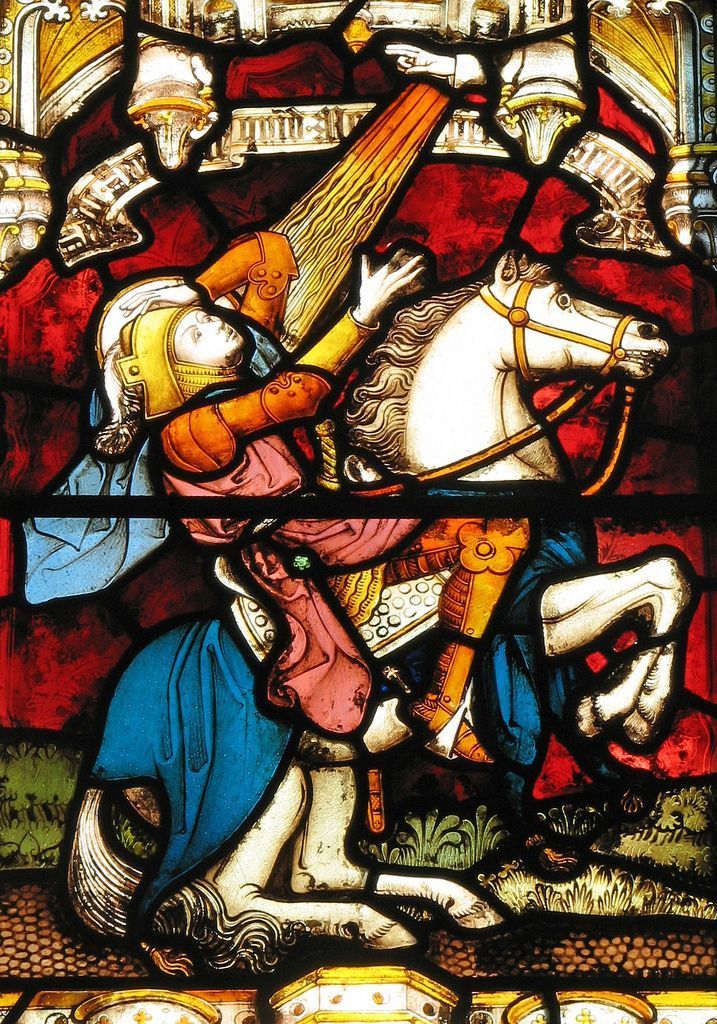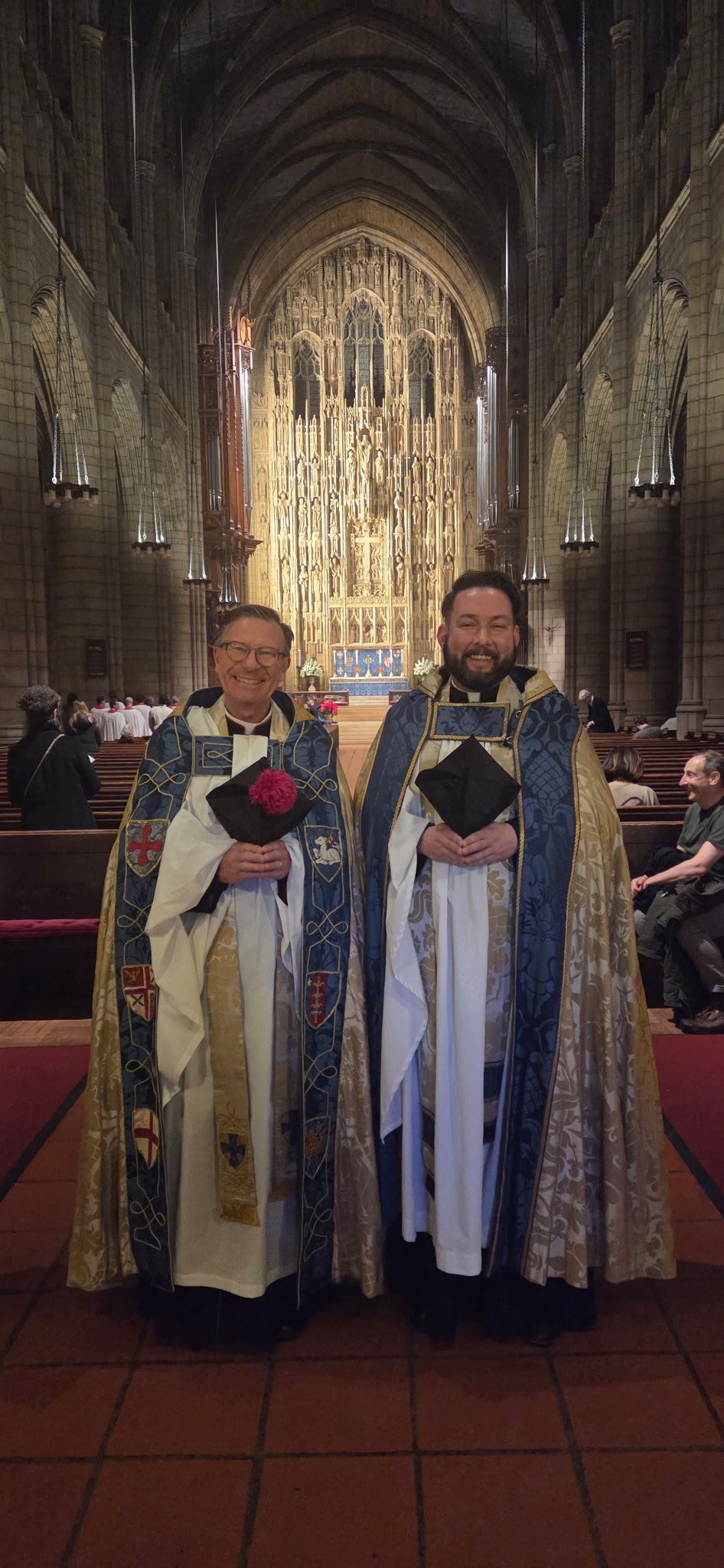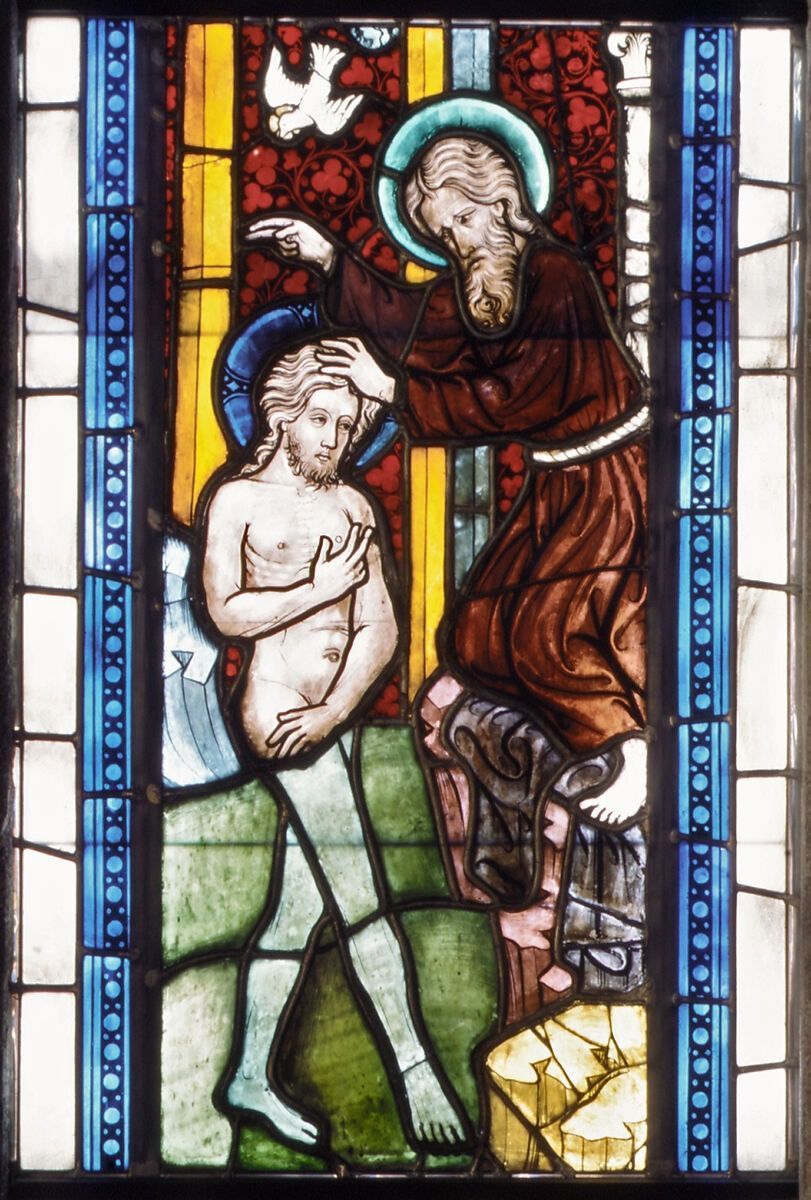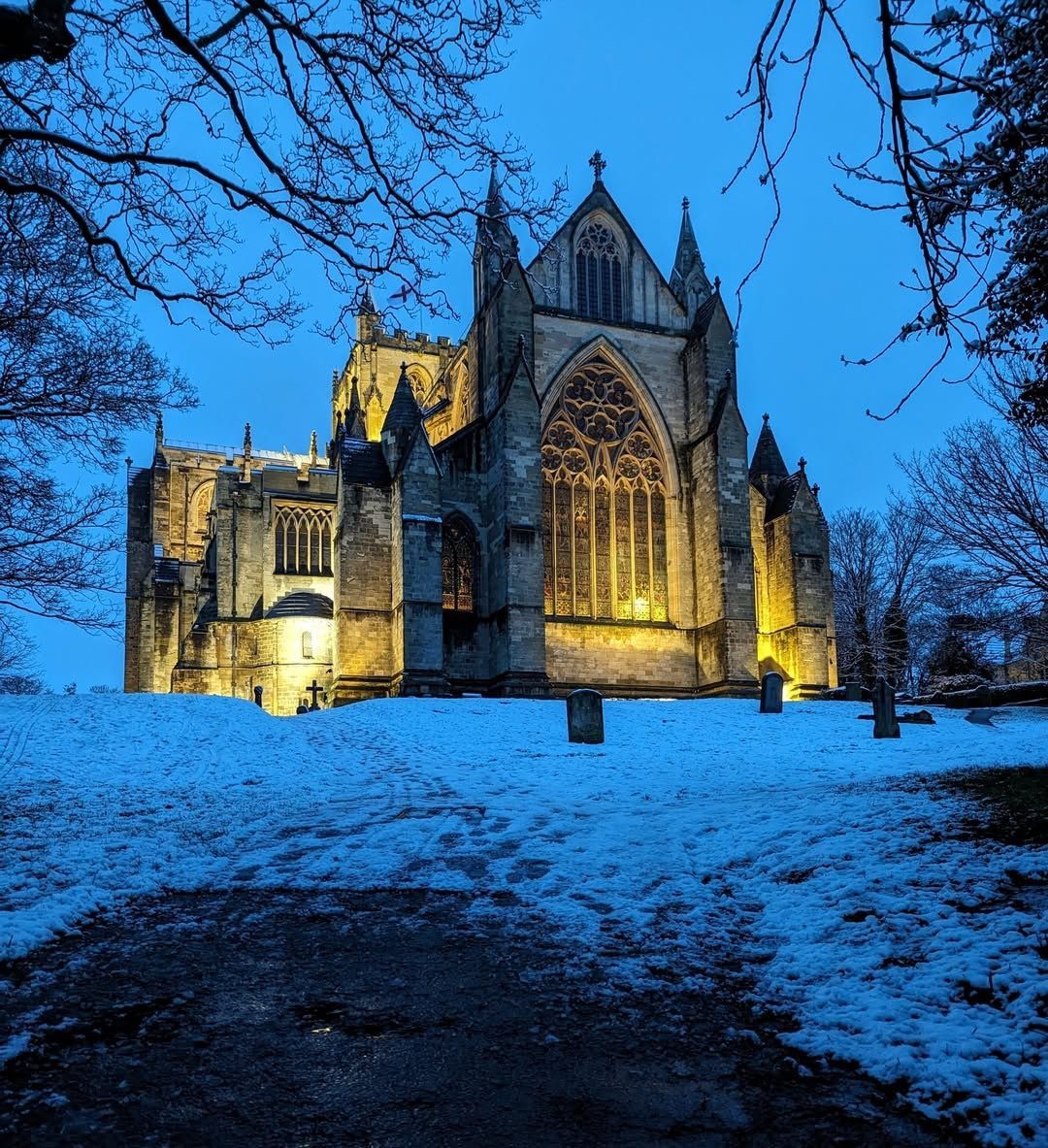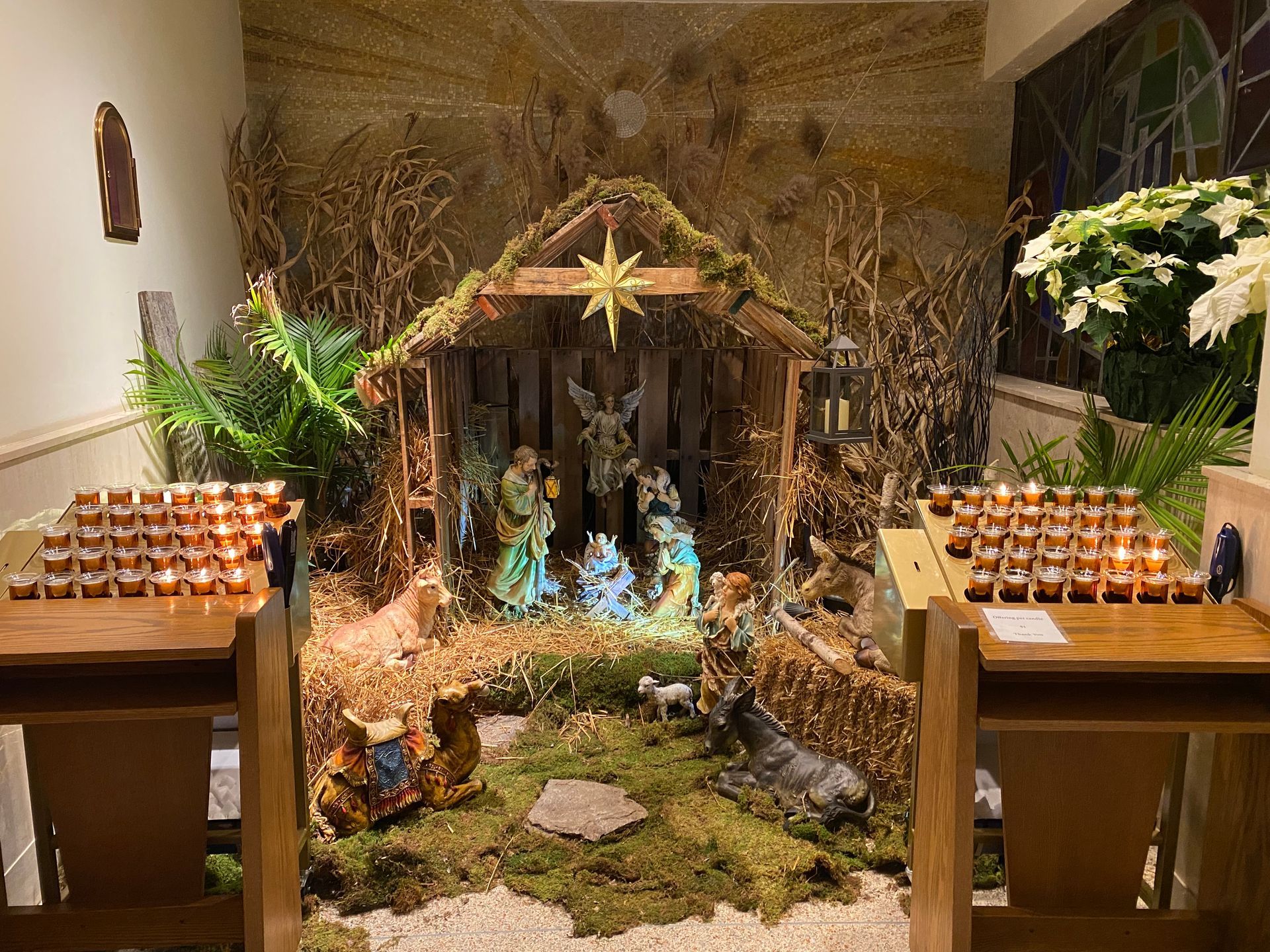First and Last
Rev. Michael J.V. Clark • August 23, 2025

“And behold, some are last who will be first, and some are first who will be last.”
Luke 13:30
This saying of Jesus has often puzzled me. It makes me think: ‘wait, no - how is that fair?’ and then I remember the golden rule of Biblical interpretation: if your interpretation makes the Lord look like he’s unfair, unjust, or indeed any other negative characteristic: your interpretation is wrong. The Lord’s sayings are often enigmatic - not just does he teach in parables he speaks parabolically - that is to say, when dealing with Scripture you have to sit, and listen…and wait. The answer sometimes takes a lifetime.
Too hasty a conclusion, or too literal a conclusion, often puts you in a pickle. One such pickle I have observed recently is premillennial dispensationalism. On no! Another -ism! Actually this one is not one of ours - this is an Evangelical belief that God’s action in human history can be divided into ages, or ‘dispensations’ - each with their own covenant, that eternally endures. Among the many consequences of this theory is one really rather curious desire: to see the Jewish Temple in Jerusalem rebuilt, and the sacrifices within it resumed.
You heard that right. There are groups of Christians who spend much energy (and millions of dollars) into projects that would facilitate the resumption of Temple worship by Jewish priests, including practical plans to breed red heifers in Texas suitable for ritual slaughter. Let me be plain: God does not want the physical Temple in Jerusalem rebuilt - how can I be so sure? Because to do so directly contradicts the Lord’s own words:
“Destroy this temple, and in three days I will raise it up…but he was speaking about the temple of his body.”
John 2:19,21
“Woman, believe me, the hour is coming when neither on this mountain nor in Jerusalem will you worship the Father.”
John 4: 21
Furthermore, since the new Temple in the Kingdom is Christ’s own body, which is in heaven, we recognize that the promises of the Covenant with Moses are fulfilled in Christ, who offers the possibility of right worship for a new Israel constituted of those who believe in him. This means the Church is that new Israel of God - and only in Christ can worshipers offer sacrifice acceptable to the Father in Spirit and in Truth. The old Temple has been destroyed: its sacrifices are not acceptable to God, and cannot save.
This idea is the whole background to today’s Gospel. The Lord is asked a question about how many people will be saved, and he tells us three very important things:
- The door is narrow: i.e. salvation is not easy, but instead is a process that happens when we cooperate with grace, and grow in holiness of life.
- The house will be barred to some: it is not sufficient simply to profess Faith in Christ and thus be saved - the Lord is clear:
“We ate and drank in your presence, and you taught in our streets.’ But he will say, ‘I tell you, I do not know where you come from. Depart from me, all you workers of evil!’”
- The kingdom includes both Jews and Gentiles: this is what it means when he says people from the four points of the compass will “recline at table” in the kingdom.
The objection to these teachings seems to come from a Jewish perspective - this should not surprise us - the idea that the Kingdom would be open to Gentiles as well as Jews is perhaps the most controversial aspect of Christ’s soteriology. The Lord describes those excluded from the house weeping and wailing when they observe Abraham, Isaac, Jacob and the prophets eating at table with those from North, South, East and West - i.e. you, and me.
The Kingdom of God is not based on race, but on Faith; there is no privilege given to anyone on the basis of physical or historical characteristics - so, contrary to ‘Simpsonian’ eschatology, there are no Irish, Italian or Mexican neighborhoods in heaven - the only measure is holiness, in which the Blessed Virgin has the highest honor.
So what about the last being first? I don’t know about you, but I learn a lot about myself in airports - specifically that I am not very patient. Take airport barriers - you know, the stanchion-and-tape contraptions that are designed to manage queues: nothing raises my ire more than when security officials open up a new line for those behind me in the queue by a simple switch of the tape - in they all go - filing past in an express lane to the front of the line. The red mist rises!
But this is not what the Lord means here. First of all there’s no queuing for the Kingdom of God - salvation is offered to all in the blood of the Lamb: the only question is - do you remain in his love? Secondly, this phrase is the context of the Lord’s sadness at his non-acceptance by many in Israel, especially the religious hierarchy. Indeed, the following few verses are a specific lament over Jerusalem, which have been extracted from the Lectionary sequence for use in Lent. Here they are:
"O Jerusalem, Jerusalem, the city that kills the prophets and stones those who are sent to it! How often would I have gathered your children together as a hen gathers her brood under her wings, and you were not willing! Behold, your house is forsaken. And I tell you, you will not see me until you say, ‘Blessed is he who comes in the name of the Lord!’”
Luke 13:34-35
God desires for all to be saved, and for all to enter the Kingdom - but obstinacy on the basis of self-righteousness is, perhaps, the hardest form of opposition to God’s will - when you truly believe you’re doing what God wants. Sometimes it can feel like the Old Testament is someone else’s history - someone else’s story, but it’s not. God called the Hebrew people to himself “to be a light to enlighten the Gentiles, and the glory of his people Israel” - a truth we recall every single day in the Divine Office. The first called are not the last in dignity, but, just perhaps, the long plan of salvation will see all peoples reconciled in the Kingdom when He makes a new heaven, and a new earth on his timescale, not ours.
Recent Posts




